Octopuses are among the most fascinating and intelligent creatures in the ocean. Their unique abilities and behaviors have intrigued scientists and ocean enthusiasts alike. Here are ten remarkable facts that showcase the intelligence and adaptability of octopuses:
3. Tool Use
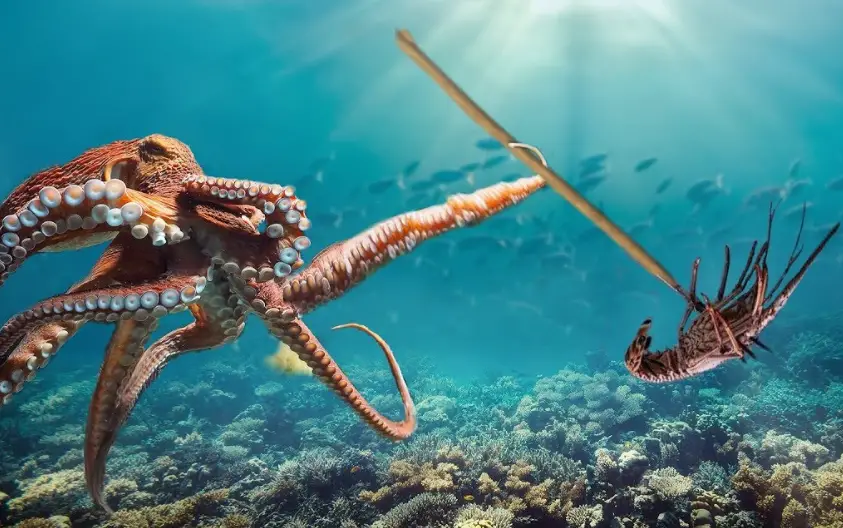
Some octopus species have been observed using tools, a trait once thought to be exclusive to humans and certain primates. For instance, the veined octopus has been seen collecting coconut shells and assembling them to create a mobile shelter, showcasing foresight and planning.
2. Problem-Solving Skills
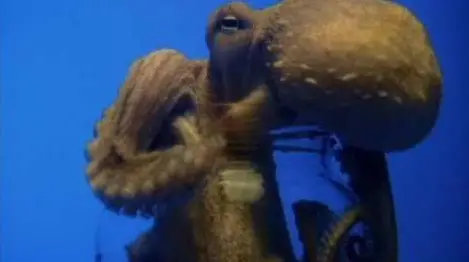
In laboratory settings, octopuses have demonstrated impressive problem-solving abilities. They can navigate mazes, open jars to access food, and manipulate objects to achieve specific goals. These behaviors indicate a high level of cognitive function and learning capacity.
3. Masterful Camouflage Artists
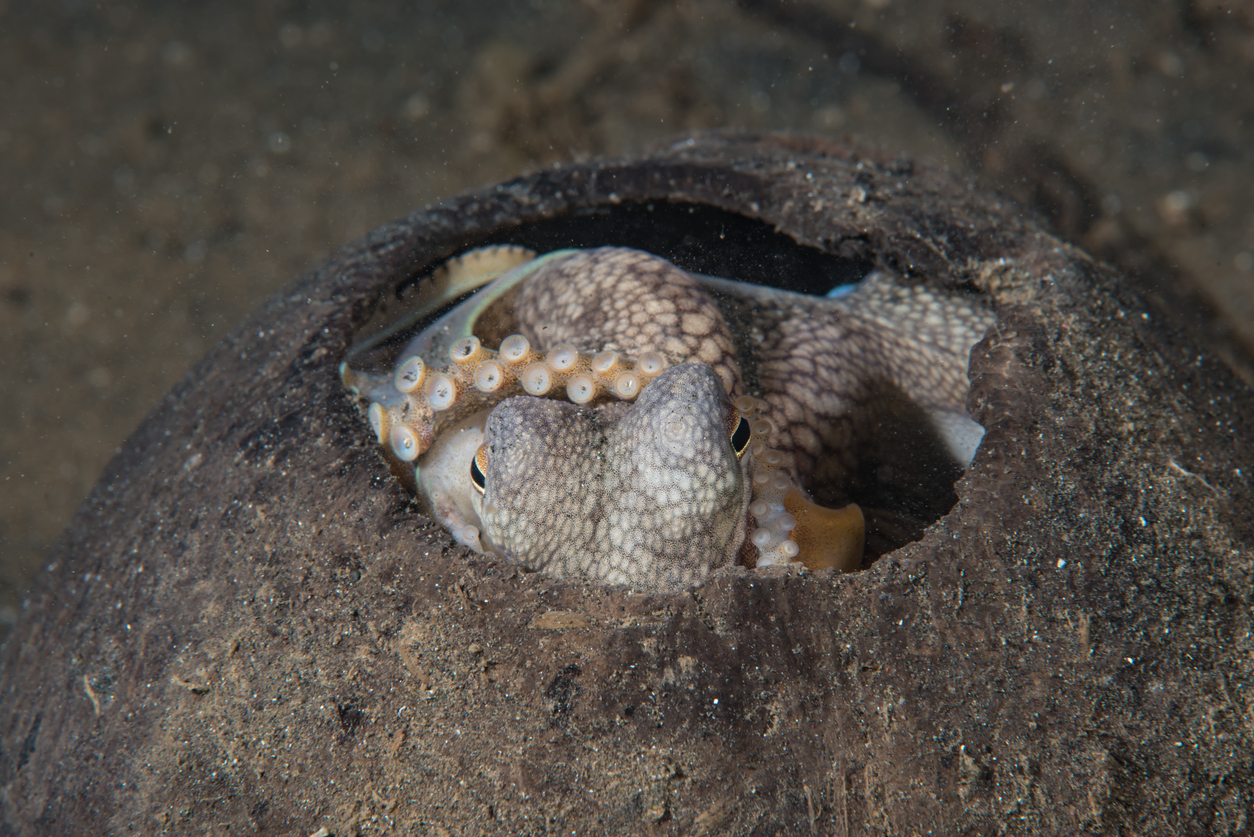
Octopuses can blend seamlessly into their surroundings by changing their skin color and texture. This ability is due to specialized skin cells called chromatophores, which expand and contract to alter pigmentation. They also have cells known as iridophores and leucophores that reflect light, enhancing their camouflage capabilities.
4. Distributed Nervous System
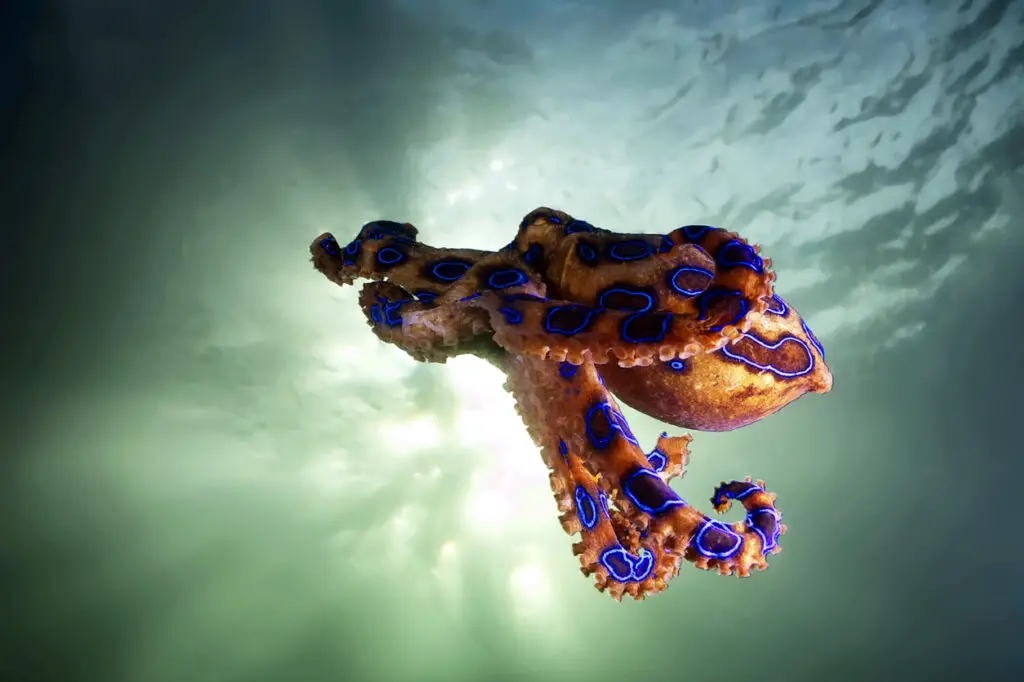
Approximately two-thirds of an octopus’s neurons are located in its arms rather than its central brain. This unique nervous system allows each arm to operate semi-independently, enabling complex movements and reactions without direct input from the brain. Such a system contributes to their dexterity and problem-solving skills.
5. Escape Artists
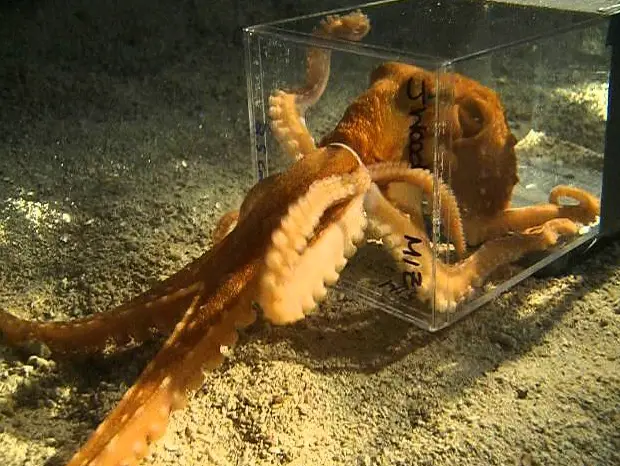
Octopuses are notorious for their ability to escape from enclosures. Their soft, boneless bodies can squeeze through remarkably small openings, and their intelligence aids in finding and exploiting potential escape routes. There have been numerous accounts of octopuses breaking out of aquariums or even moving between tanks in search of food.
6. Short-Term and Long-Term Memory
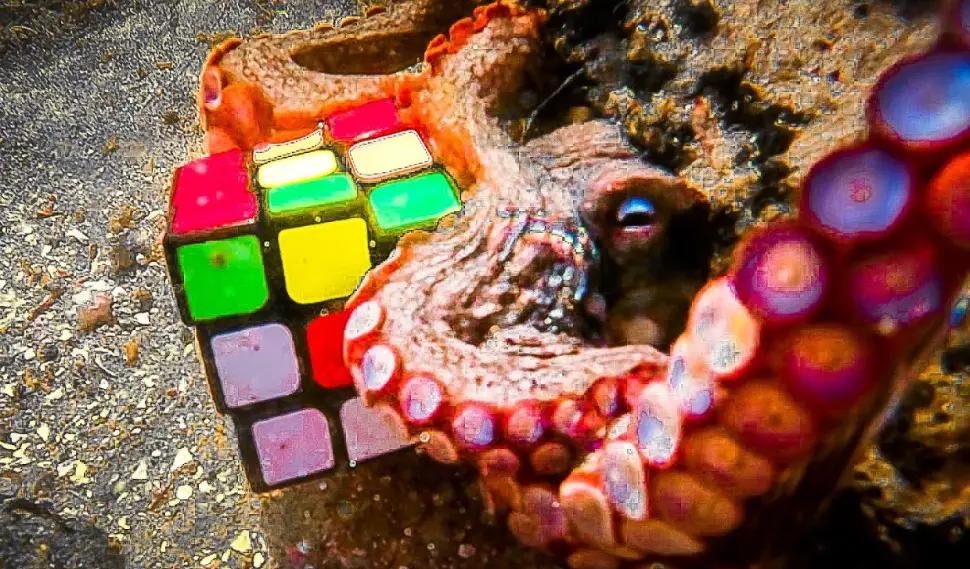
Studies have shown that octopuses possess both short-term and long-term memory capabilities. They can remember solutions to puzzles and retain information about their environment, which aids in hunting and avoiding predators. This memory retention is indicative of their advanced neural processing.
7. Complex Social Interactions
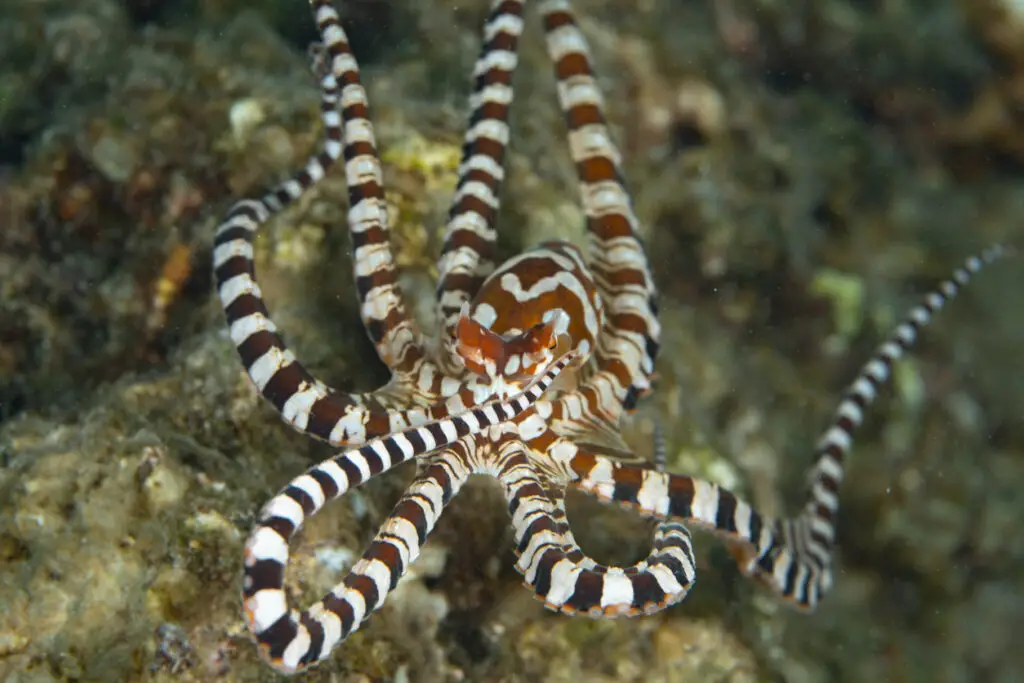
While traditionally considered solitary, recent observations suggest that some octopus species engage in complex social behaviors. In certain environments, they have been seen communicating through body patterns and postures, engaging in cooperative hunting, and even displaying social hierarchies. These interactions hint at a level of social intelligence previously unrecognized in cephalopods.
8. Regenerative Abilities
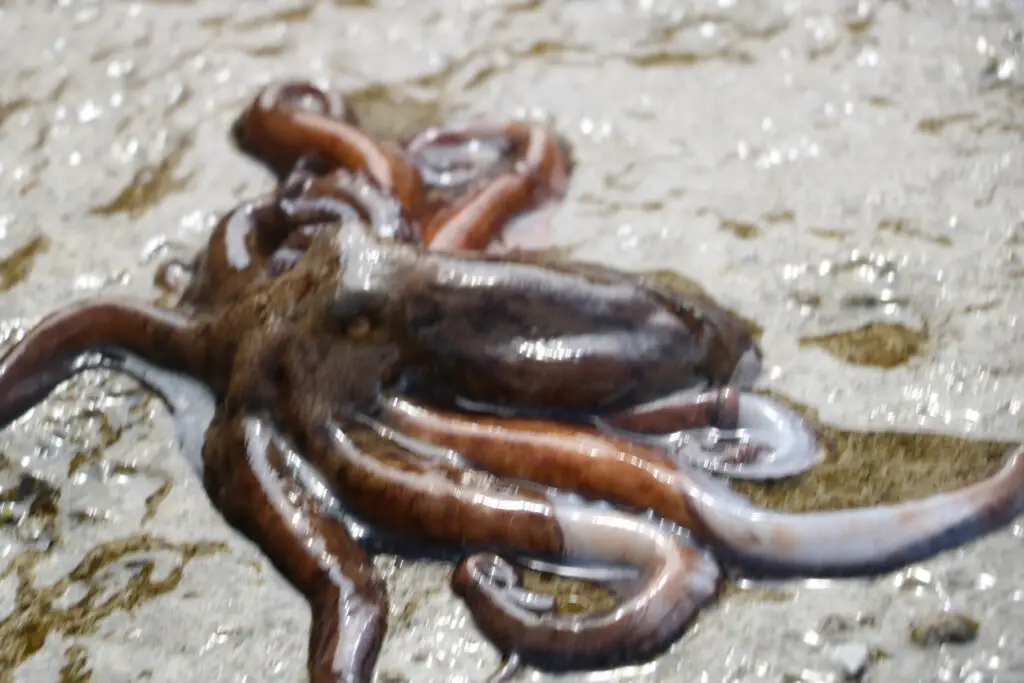
Octopuses can regenerate lost arms, a process that not only restores the limb but also its full functionality, including the nervous and muscular systems. This remarkable ability ensures they maintain their dexterity and survival skills even after injury.
9. Inking as a Defense Mechanism
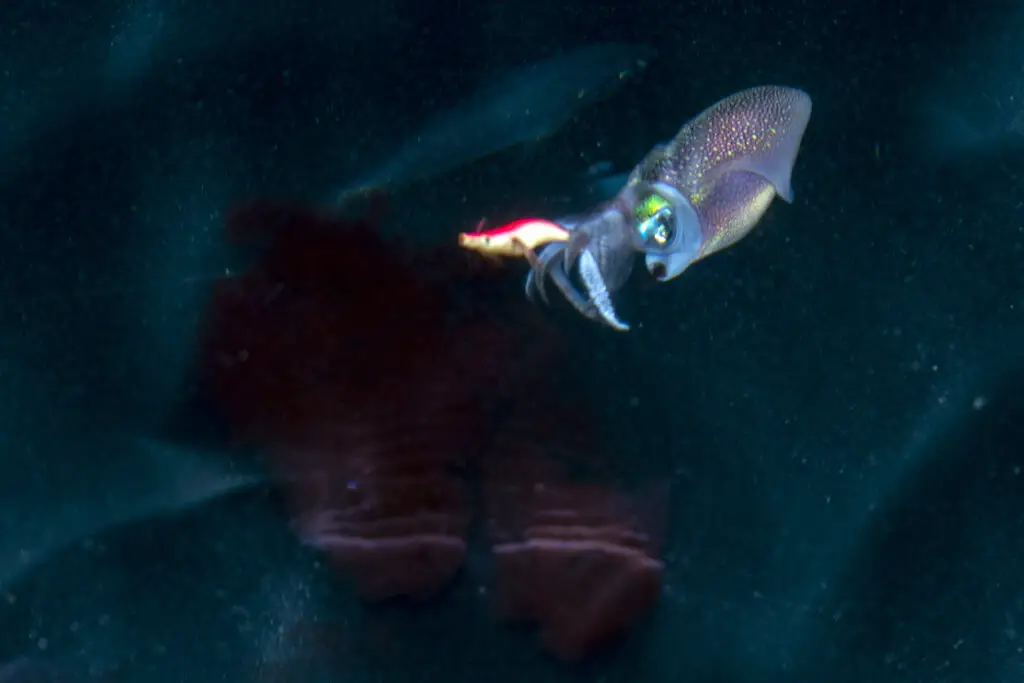
When threatened, octopuses can eject a cloud of ink to obscure a predator’s view, allowing them to escape. Some species’ ink contains compounds that can dull a predator’s sense of smell and taste, further aiding in their getaway. This multifaceted defense strategy showcases their adaptability and survival instincts.
10. Mimicry
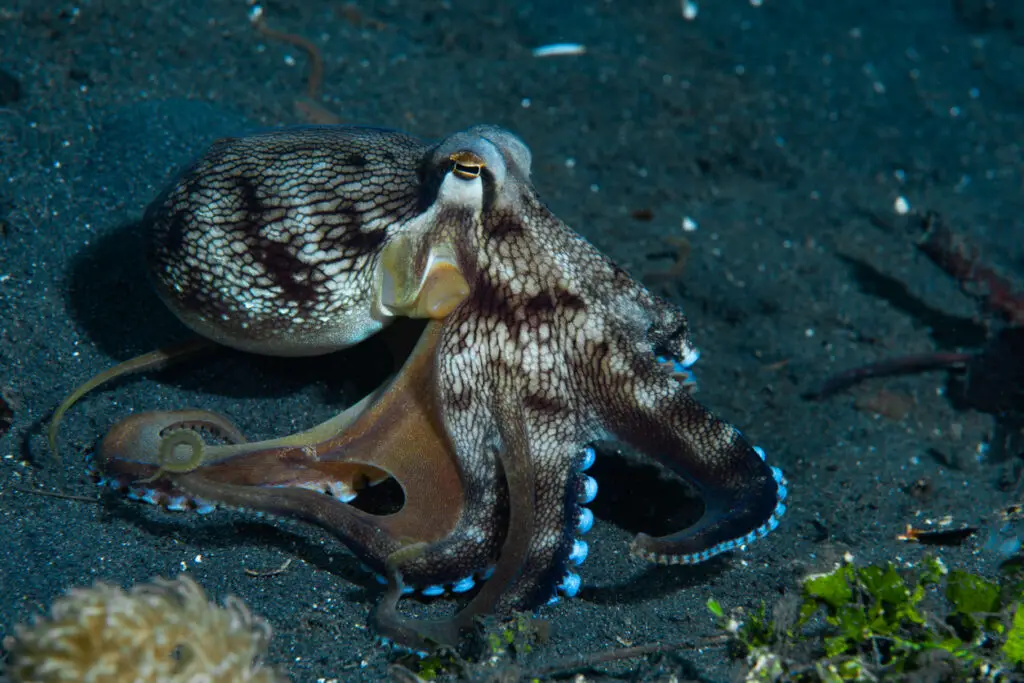
Certain octopus species, like the mimic octopus, can imitate the appearance and movements of other marine animals, such as lionfish, flatfish, and sea snakes. This form of mimicry serves as a defense mechanism to deter predators by impersonating more dangerous creatures. Such behavior demonstrates their ability to assess threats and adapt their responses accordingly.


